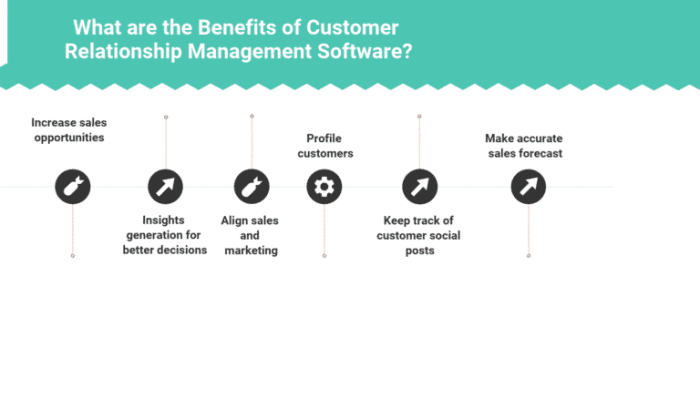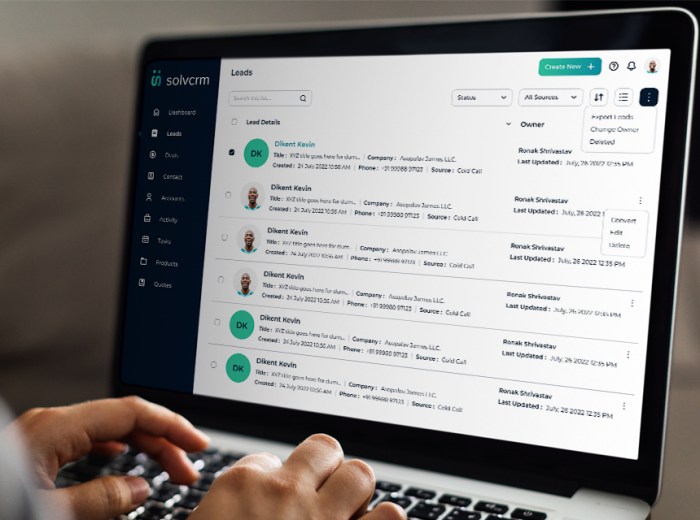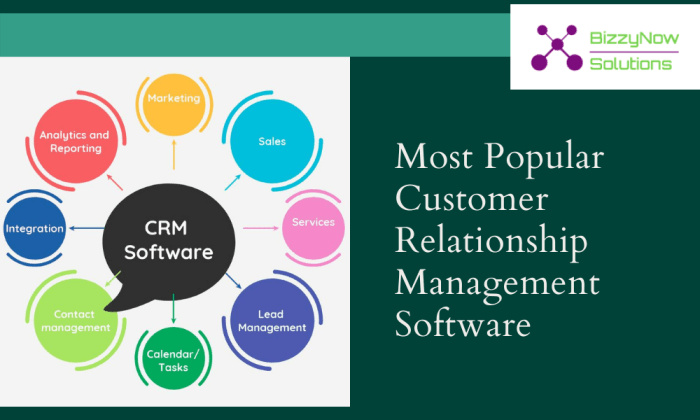Crm software for service business – In today’s competitive landscape, providing exceptional customer service is paramount for the success of any service business. Efficiently managing customer interactions, tracking service requests, and nurturing relationships are crucial for growth and profitability. This is where Customer Relationship Management (CRM) software steps in. A well-implemented CRM system can streamline operations, improve customer satisfaction, and ultimately boost your bottom line.
This detailed guide explores the vital role of CRM software in service businesses, highlighting its key features, benefits, and considerations for selection and implementation.
Understanding the Needs of Service Businesses
Service businesses, unlike product-based companies, rely heavily on direct customer interaction. The nature of service delivery necessitates robust tools for managing appointments, tracking progress, handling inquiries, and resolving issues. A CRM tailored to these needs offers significant advantages over traditional methods like spreadsheets or notepads. Key aspects of service businesses that benefit from CRM include:
- Appointment Scheduling and Management: Efficiently schedule, reschedule, and manage appointments across multiple service providers, minimizing conflicts and maximizing utilization.
- Service Request Tracking: Centralized tracking of all service requests, from initial contact to completion, ensures accountability and timely resolution.
- Communication Management: Maintain a seamless communication flow with customers via email, phone, SMS, and other channels, ensuring personalized interactions.
- Customer Support Ticket Management: Streamline the process of handling customer support tickets, assigning them to appropriate personnel, and tracking their progress.
- Performance Monitoring and Reporting: Gain insights into team performance, service delivery times, customer satisfaction levels, and other key metrics.
- Field Service Management (FSM): For businesses with on-site service technicians, CRM with FSM capabilities optimizes route planning, dispatch, and real-time tracking.
Key Features of CRM Software for Service Businesses
A robust CRM for service businesses goes beyond basic contact management. It should incorporate features designed to address the unique challenges of service delivery. These features typically include:
Core CRM Features:
- Contact Management: Store and manage comprehensive customer data, including contact information, communication history, service history, and preferences.
- Lead Management: Track potential customers from initial inquiry to conversion, nurturing them through the sales process.
- Sales Pipeline Management: Visualize the sales process, track deals, and forecast revenue.
- Workflow Automation: Automate repetitive tasks such as email marketing, appointment reminders, and follow-ups.
- Reporting and Analytics: Generate reports on key performance indicators (KPIs) to track progress and identify areas for improvement.
Service-Specific Features:, Crm software for service business
- Appointment Scheduling: Integrate with calendars and allow customers to book appointments online.
- Service Level Agreements (SLAs): Track adherence to SLAs to ensure timely service delivery.
- Inventory Management: Track parts and supplies needed for service delivery.
- Field Service Management (FSM): Optimize route planning, dispatch, and real-time tracking of field technicians.
- Customer Support Ticket Management: Efficiently manage and track customer support requests.
- Self-Service Portal: Empower customers to access information, track requests, and manage their accounts independently.
Benefits of Implementing CRM Software
The advantages of implementing a CRM system for a service business are numerous and far-reaching. They can be broadly categorized into:
Improved Customer Satisfaction:
- Personalized Service: Access to comprehensive customer data enables personalized service and targeted communication.
- Faster Response Times: Streamlined workflows and automated processes ensure quicker response times to customer inquiries and requests.
- Proactive Service: Identify potential issues and proactively address them before they escalate.
Increased Efficiency and Productivity:
- Automation of Repetitive Tasks: Free up staff time to focus on higher-value activities.
- Improved Team Collaboration: Centralized access to information fosters better collaboration among team members.
- Optimized Resource Allocation: Efficient scheduling and resource management improve utilization and minimize downtime.
Enhanced Revenue and Profitability:
- Improved Sales Conversion Rates: Effective lead management and sales pipeline tracking improve conversion rates.
- Increased Customer Retention: Exceptional customer service leads to higher customer retention rates.
- Better Forecasting and Planning: Data-driven insights enable better forecasting and resource planning.
Choosing the Right CRM Software
Selecting the right CRM software requires careful consideration of your specific business needs and requirements. Factors to consider include:
- Business Size and Complexity: Choose a system that scales with your business growth.
- Budget: Consider the cost of the software, implementation, and ongoing maintenance.
- Integration Capabilities: Ensure seamless integration with existing systems, such as accounting software and payment gateways.
- User-Friendliness: Opt for a system that is easy to use and navigate for all team members.
- Scalability and Flexibility: Choose a system that can adapt to your changing business needs.
- Customer Support: Ensure the vendor provides adequate customer support and training.
Popular CRM Software Options for Service Businesses
Several CRM platforms cater specifically to the needs of service businesses. Some popular options include (but are not limited to):
- Salesforce Service Cloud: A comprehensive platform offering a wide range of features for service businesses of all sizes.
- Zendesk: Known for its robust ticketing system and customer support features.
- HubSpot Service Hub: A user-friendly platform with strong features for managing customer interactions and providing support.
- Freshdesk: A popular option for small and medium-sized businesses, offering a good balance of features and affordability.
- Zoho CRM: A versatile platform with a wide range of features at a competitive price point.
It’s crucial to research and compare different options before making a decision. Many vendors offer free trials or demos, allowing you to test the software before committing to a purchase.
Implementing and Optimizing Your CRM: Crm Software For Service Business
Successful CRM implementation requires careful planning and execution. Key steps include:
- Define Your Goals and Objectives: Clearly define what you want to achieve with your CRM system.
- Data Migration: Accurately transfer existing customer data to the new system.
- User Training: Provide comprehensive training to all team members on how to use the system effectively.
- Ongoing Monitoring and Optimization: Regularly monitor system performance and make adjustments as needed.
Frequently Asked Questions (FAQ)
- Q: What is the cost of CRM software? A: The cost varies widely depending on the vendor, features, and number of users. Some offer tiered pricing plans, while others charge per user per month.
- Q: How long does it take to implement a CRM system? A: The implementation time depends on the complexity of the system and the size of your business. It can range from a few weeks to several months.
- Q: What are the key metrics to track after CRM implementation? A: Key metrics include customer satisfaction scores (CSAT), Net Promoter Score (NPS), average handling time (AHT), first call resolution (FCR), and customer churn rate.
- Q: Can CRM software integrate with other business applications? A: Yes, most modern CRM systems offer integration capabilities with other applications such as accounting software, marketing automation tools, and payment gateways.
- Q: What if my business is too small for a CRM? A: Even small businesses can benefit from CRM. Many platforms offer affordable plans tailored to smaller user bases and simpler needs. Starting small and scaling as you grow is a viable strategy.
Conclusion
Investing in the right CRM software is a strategic move for any service business aiming to enhance customer relationships, streamline operations, and drive growth. By carefully considering your specific needs, selecting a suitable platform, and implementing it effectively, you can unlock the full potential of your customer interactions and achieve significant improvements in efficiency and profitability.
References
While specific URLs are not included to avoid potential link rot, reliable sources for further research include industry publications such as Gartner, Forrester, and IDC, as well as vendor websites for the CRM solutions mentioned above.
Call to Action
Ready to transform your service business with the power of CRM? Contact us today for a free consultation and let us help you find the perfect CRM solution to meet your unique needs.
FAQ Corner
What types of service businesses benefit most from CRM software?

Source: predictiveanalyticstoday.com
Businesses across various service sectors, including consulting, healthcare, repair services, and professional services, can significantly benefit from CRM implementation.
How much does CRM software typically cost?
Pricing varies widely depending on the features, scalability, and vendor. Options range from affordable cloud-based solutions to more expensive enterprise-level systems. A thorough needs assessment is crucial to determine the appropriate investment level.
What are the key features to look for in a service business CRM?
Essential features include contact management, appointment scheduling, service request tracking, task automation, reporting and analytics, and integration with other business tools.

Source: solvcrm.co
How long does it take to implement a CRM system?

Source: medium.com
Implementation timelines depend on the complexity of the system and the size of the business. Smaller businesses might see results in weeks, while larger enterprises may require months.
